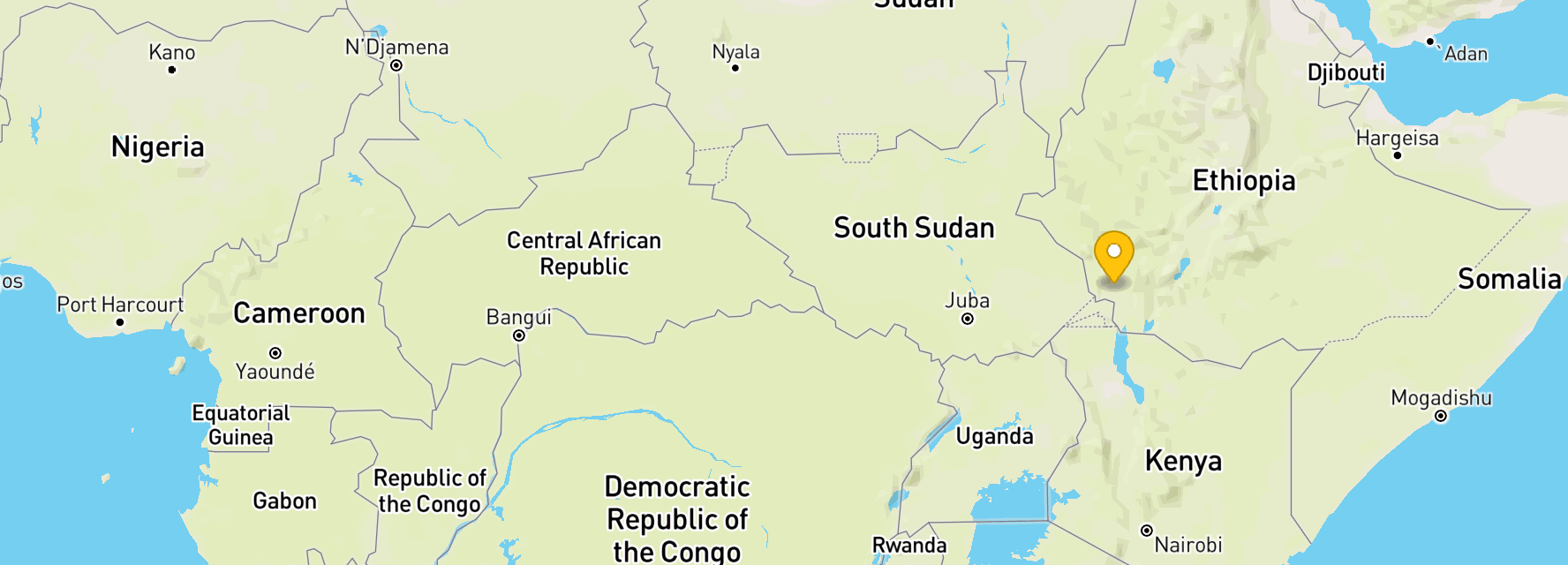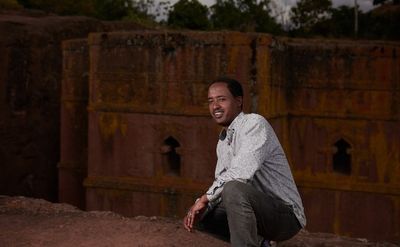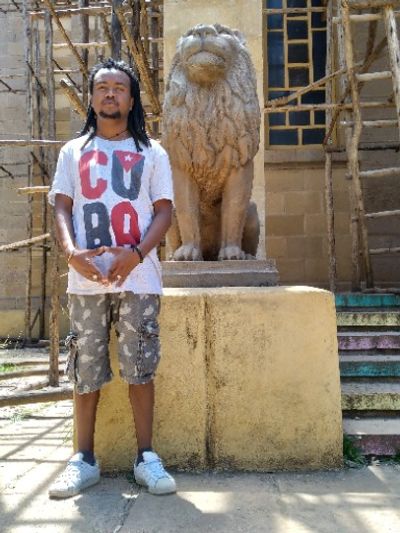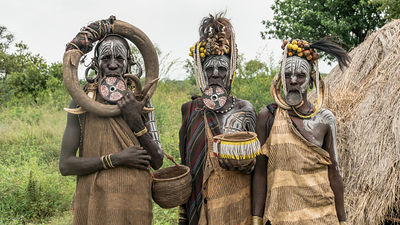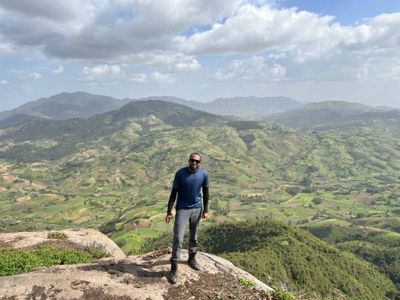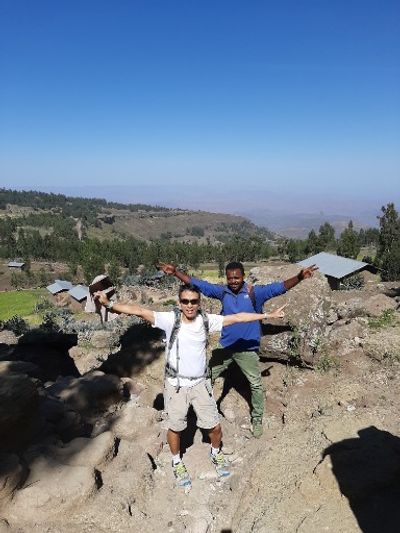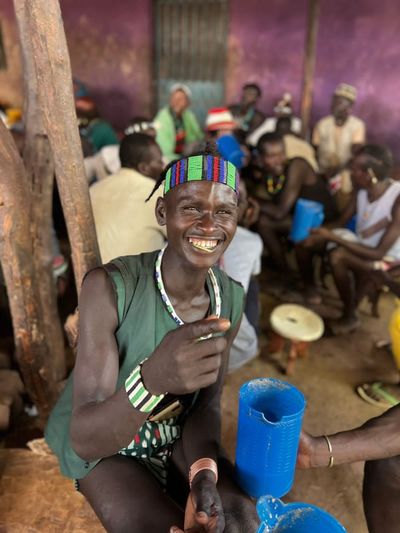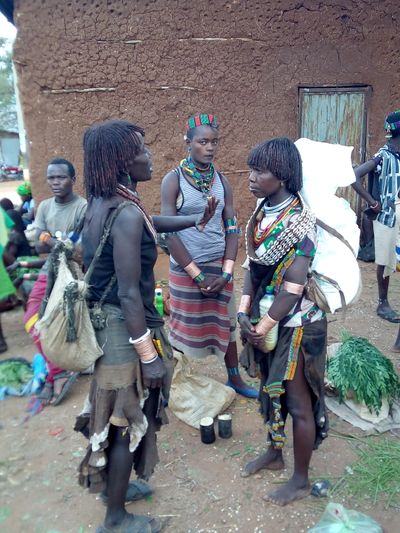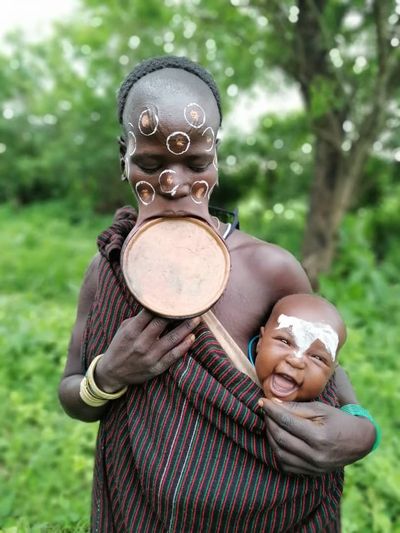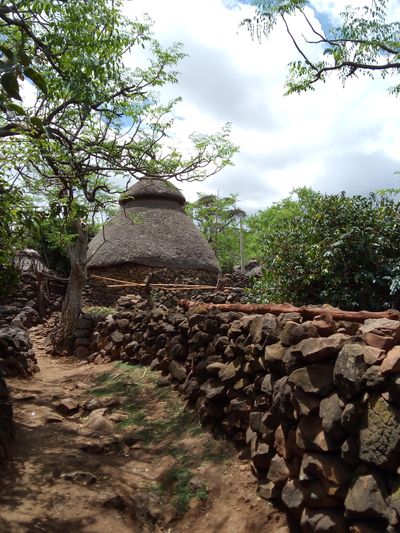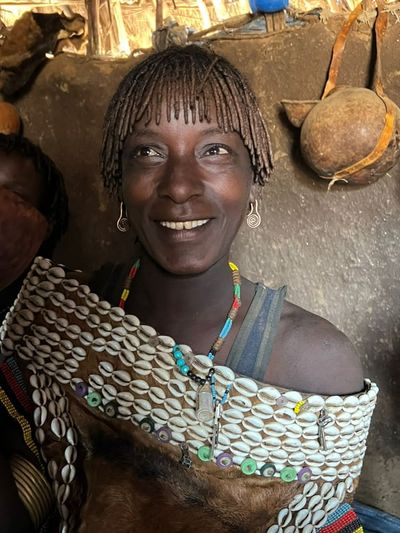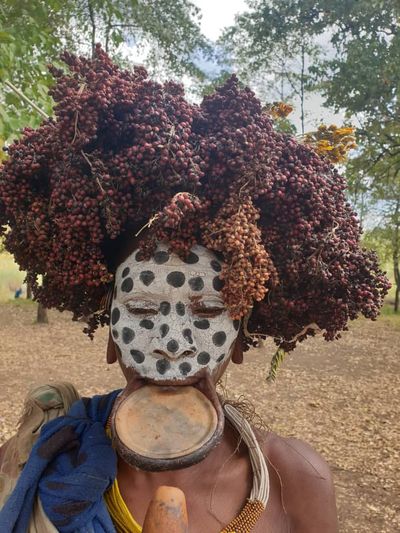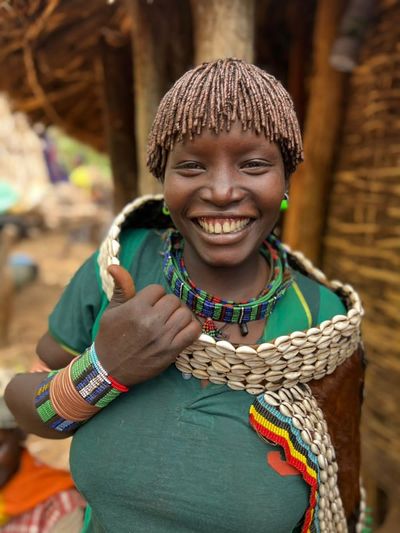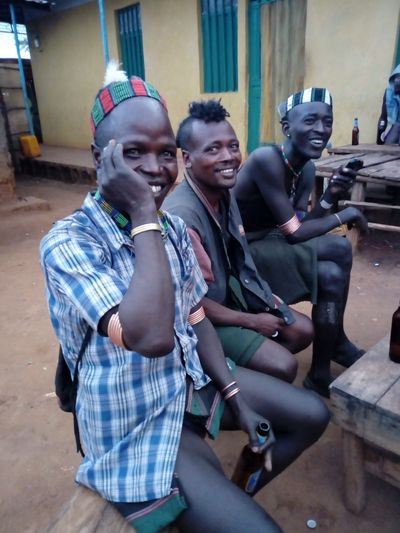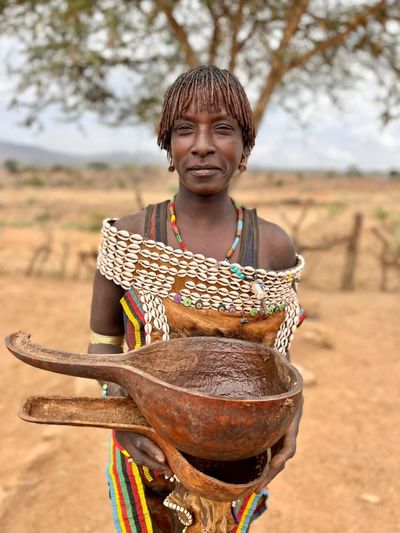
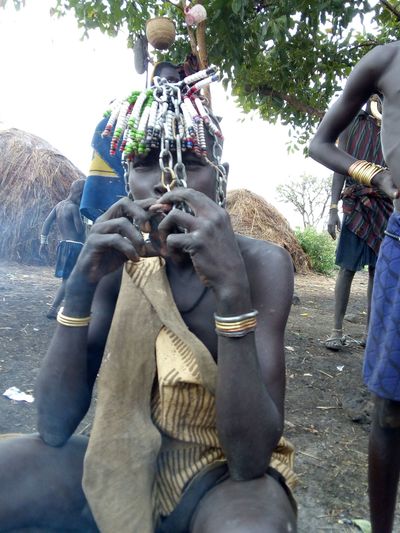

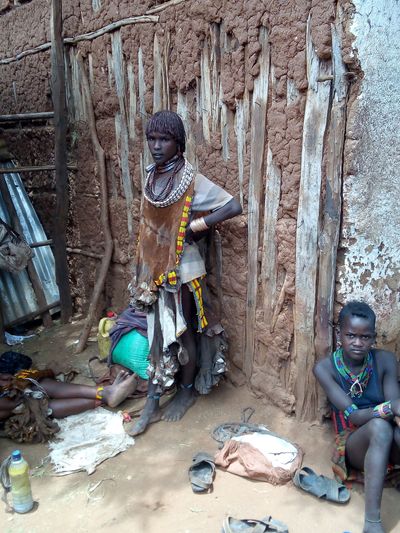

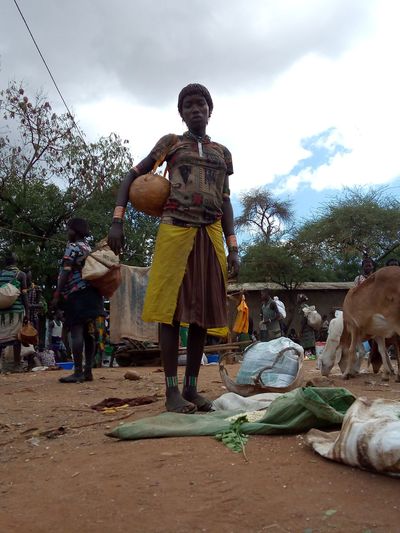
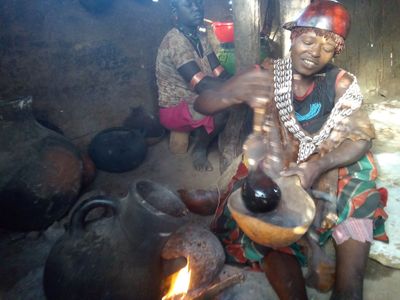

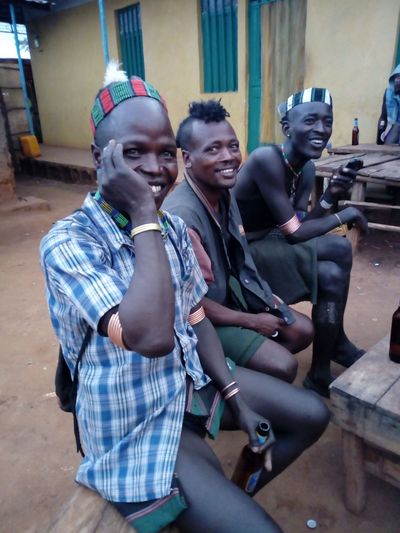
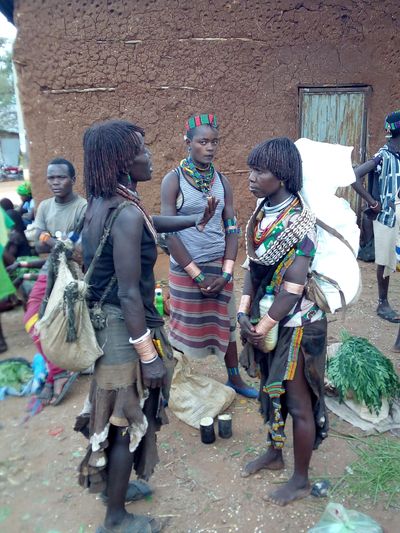


12-days Omo Valley tour
$2,445.00
12-days Omo Valley tour





$2,445.00
per person
What we'll do
DAY 1: ADDIS ABABA
After completing the airport paperwork, short relaxation in the hotel and breakfast, then the whole day in Addis Ababa. Visit to the National Museum of the city, famous for its rich paleontological exhibition, with fossil finds unique in the world, including those of Lucy and other hominid predecessors. Everything is well organized, in an innovative setup. Here we discover how and why Ethiopia can be considered the cradle of humanity. Then visit the Ethnographic Museum, housed in the ancient residence of Emperor Haile Selassie. Of great interest are the splendid collection of ancient icons of the sovereign and the collection of objects from different of the country's 83 ethnic groups (in a functional and instructive display). In the afternoon visit to the Cathedral of San Giorgio, designed and built following the great victory of Adua in 1896. Dinner and overnight stay in the hotel.
DAY 2: ADDIS ABABA – ABIDJATTA PARK
After breakfast, departure by car for the Abidjatta-Shalla National Park (about 200 km from the capital). The Park is located between two pristine volcanic lakes, very different from each other, at 2,000 meters above sea level. It is the ideal habitat for various species of aquatic birds, including greater and lesser pink flamingos, white pelicans, cormorants, screaming eagles, Egyptian geese and various species of plovers and herons. There are also ostriches, and many mammals: kudus, warthogs, jackals, gazelles, antelopes and the beautiful black and white colobus monkeys. There are also bubbling springs of hot thermal water, in which you can bathe. Overnight stay in a tent in the park.
DAY 3: ABIDJATTA PARK – AWASA
Drive through the Rift Valley until you reach Awasa, a beautiful city lying on the shores of Lake Omonimo, in the region inhabited by the Sidamo people, with ancient and original traditions. Ride along the shores of Lake Awasa, and spot birds and other animals. Visit to the colorful fish market, also frequented by maribou and monkeys. Lunch on the lake based on fresh fish. In the early afternoon visit to Wondo Genet, a splendid spa town in the mountains, at 1,700 meters. Here there are hot water waterfalls and a splendid, comfortable swimming pool carved into the rock. It was one of the places where Haile Se-lassie loved to retreat, who here met Rastas from all over the world who came to visit him and talk to him. To any of them who wanted to stop and live here, the negus gave a small house and some land in nearby Shasamenne. In the evening: sighting of hyenas. Overnight at Hotel.
Day 4: WONDO GENET – ARBA MINCH
Departure for Arba Minch, the capital of south-western Ethiopia (about 500 km from Addis Ababa). Before arriving in the city, stop in Dorze and visit one of the villages of the famous Gamo warriors, the Dorze, known for their fine weaving work and very high huts that resemble elephant faces. Stop at a family, where it will be possible to watch the preparation and cooking of enset bread or "false banana", taste it, and also taste their traditional grappa. It will also be possible to watch artisan weaving. Arba Minch is one of the most beautiful cities in Ethiopia, at 1,600 meters above sea level, between mountains, woods, springs and two large lakes: Abaya and Chamo. Overnight stay in a hotel overlooking the lakes and the hill called Bridge of God. Here, as the great reporter Ryszard Kapuscinski wrote, "A human being can truly feel like the King of the Universe!"
DAY 5: ARBA MINCH – LAKE CHAMO – KONSO
Transfer to the Omo Valley. After a twenty-minute journey from Arba Minch, in an area populated by baboons, we will make a small detour towards Lake Chamo to carry out a memorable excursion in the midst of still virgin nature, habitat of a myriad of species of aquatic birds ( including the fish eagle, the marabou, the pelican, the ibis), hippos and above all the famous Nile crocodiles, the largest in the world. Departure for the region of the Konso people, whose traditions and architecture have been recognized and preserved by UNESCO as a World Heritage Site. Visit to Gamole village, one of the first Konso settlements. This village, or "Kanta", was born for defensive purposes, in fact it stands on a precipice overlooking the plains of the Derashe enemies. Thanks to a series of labyrinths, defense walls, gathering places for forces and common homes for children, the Konso managed to save their granaries, their homes and their culture, thus distinguishing themselves from the populations residing in the din -come back. Overnight at Kanta Lodge.
DAY 6: KONSO – ARBORE – TURMI
Early morning departure towards Turmi, capital of the Hamer people. Along the way, stop to visit the village of Arbore, near Mount Buska, sacred to the Hamer. The Arbore are a people of Cushitic origin, similar to the Dassenech (who we will meet later), but more peaceful and hospitable, with original traditions and colorful clothing. Their village is very beautiful, not beaten by the tourist routes. Departure for the territory of the Hamer, one of the best known and admired Ethiopian peoples due to their rich culture and characteristic rituals. Overnight stay at Buska Lodge in Turmi
DAY 7: TURMI – KOLCHO (KARO) – TURMI
Early morning departure in the direction of Kolcho, a village of the Karo people: one of the three inhabited places left to this people, now made up of only around 1,500 individuals. The Karo are primarily fishermen, related to the Hamer and the Bena (but also strongly influenced by common origins with the Dassenech). They live along the Omo river (very rich in fish and populated by crocodiles): precisely in the places where the first human beings as we know them appeared (relics are present throughout the valley, up to Kibbish, in the territory of the Surma, further afield north). A ritual very well practiced by the Karo is that of drawings on the body and faces. Return to Turmi. If it is held nearby, we will participate - as an additional activity - in the "Leaping of the Bulls", a ceremony which marks the passage of the boys Hamer, Bena and Karo from puberty to adulthood, but above all it establishes a blood pact between who carries it out and the participants in the ritual. We will spend all day and night (sleeping in tents) in a small Hamer village immersed in the savannah, where tourists never arrive: thus, we will be able to better understand the life of this extraordinary people, and also the essence of our lives, because we were all born and have lived for a long time in these places.
DAY 8: TURMI – OMORATE – NYANGATOM
Route from Turmi to Omorate, capital of the Dassenech people, fierce opponents of the Hamer. Here, if the time is right, we will witness their Dime ceremony, that is, thanksgiving and blessing, performed by all the families of a village. Visit to the Nyangatom people, who are usually not touched by tourist routes. The Nyangatom are Nilotic (with strong South Sudanese and Lake Tur-kana influences), like the Mursi, but are not, traditionally, on good terms with them. They are very fond of adorning their bodies, and above all practicing showy scarifications: men to signal enemies and wild animals killed, women as an element of beauty. Overnight stay in Turmi Lodge.
DAY 9: TURMI – JINKA
In the morning we will reach Jinka, along the river of the same name. In the morning visit to an Ari village. The Ari people are of homotic origin: many peoples of the Valley derive from them. We will learn from them to create splendid terracottas, metal objects (including knives and spearheads: the Ari have a taboo on firearms) and to distill a unique grappa for its exquisiteness. Overnight at Jinka Resort.
DAY 10: JINKA
From Jinka visit the Mursi. This people, of Nilotic origin, inhabits the hills of the Magician Park, rich in game, water and above all large prairies where their herds have grazed undisturbed for centuries: in fact the Mursi warriors continue to protect their beasts from wild animals and also from enemy peoples. Their ferocious stick fights, called “donga”, are impressive. Mursi women are known for the labial plate that they wear inside the incisions made in the lower lip, and for their extreme freedom. We will spend the morning together with this people of warriors who, with their scarifications and continuous bathing, spend their lives in a "wild" way. In the afternoon we walked along the Jinka River. Overnight at Jinka Resort.
DAY 11: JINKA – KEY AFAR
From Jinka visit to Key Afar and meet with the Banna people, in one of their villages (i.e. in a group of independent single-family houses surrounded by some land and raised animals). The Banna are a homotic people (similar to the Hamer), welcoming, peaceful and kind (and not overwhelmed by tourism), with a very original social life: libertarian, individualistic and supportive. We will enjoy their company, and we will pay a visit to the House of Tedge (dry, slightly alcoholic and socializing drink, based on the fermentation of honey, abundant and exquisite in the region, and of some shrubs). Return to Jinka, and overnight in a resort.
DAY 12: JINKA – ADDIS ABABA
Return by plane from Jinka to Addis Ababa. Arrival at destination in the afternoon. Visit to a bazaar of traditional Ethiopian objects, ancient (of great interest) and modern. Dinner and late night departure.
Where we'll go
Good to know
What is included?
- All local transport and transfers by Toyota Land Cruiser off-road vehicle (or equivalent vehicle), regularly insured
- Accommodation in mid-range hotels and resorts in a double room (including breakfast)
- Lunches and dinners throughout the trip
- Bottles of mineral water to take with you during the journey
- Visits and excursions included in the program
- Entrance fees to parks, villages, museums, churches and monuments during your stay and guided tours Ethiopian guide ( who speaks English well)
What is not included?
- Visa costs for Ethiopia (approximately 82 euros each)
- All alcoholic drinks
- Anything not included in the program
Cancellation and refund
The booking fee ($45.00 p.p. included in the displayed price) is non-refundable if you cancel your booking. If a local cancels a booking or does not show up at the agreed time and place, you receive a full refund of the booking fee.
You are buying a unique experience that also empowers local communities and people to improve their lives by sharing their knowledge and lifestyle.
We give space for creativity. The locals themselves decide and develop the activity idea and design it in a way they find interesting.
Locals get 100% of the price they want. The booking fee is added separately.
Meet the Local
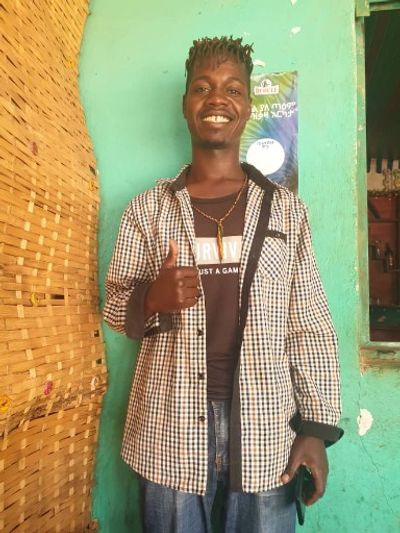
My name is Esho Tafes I am a man who born and grow up there (a member of Benna tribe) and have been guiding tourists for several years, so for I can say that, my trips to Omo Valley always have been a cultural exchange more than an enjoyable businesses. May aim is always, to offer to my guest something more than the usually tourist traps and take them to off the beaten track. Camping at remote village is the best way to meet and interact with authentic people on personal and intimate level rather than just drive for the day trip and take picture like the usually way for the so-called experience Human-Zoo.
Ask questions
Please note
It can take 1-2 days until locals respond to your questions.
Asking questions is restricted to registered users. Don't worry. It's free!
